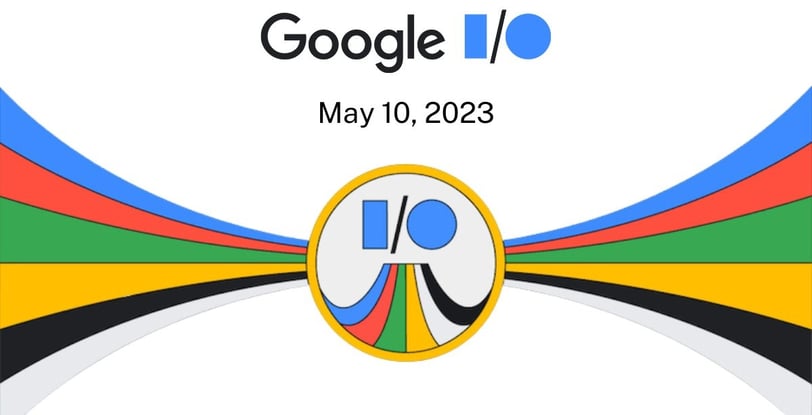Google I/O 2023
15 Key Points for Developers and AI
Niez Sellami
5/11/20233 min read


Google I/O 2023 was marked by a number of key innovations and announcements related to software development and artificial intelligence (AI). Here are the top 15 points to remember:
The pervasiveness of AI:
Google pointed out that AI is now integrated into all of its flagship products, from Google Search to Google Photos and Google Maps. This translates into an expanded range of AI APIs for developers, allowing them to create applications that can interact more sophisticated and meaningful with these services.Google Assistant Advances:
Google Assistant has been enhanced with new deep learning and natural language processing features, allowing for better understanding of complex queries and better contextual integration. This gives developers more flexibility to integrate smart assistant into their applications and to create more natural and intuitive user experiences.Innovations in cloud computing:
Google showcased its latest advances in cloud computing technology, including more efficient and secure computing and storage services, as well as new tools for monitoring, error management and performance optimization. These services provide developers with the ability to create more robust, scalable and secure applications.Google AutoML :
AutoML is a new service that allows developers to train machine learning models without extensive machine learning expertise. With AutoML, developers can easily create sophisticated AI applications, simply using input data and specifying the type of task to be performed (for example, classification, regression, etc.).Privacy Enhancements:
Google has announced new measures to strengthen personal data protection and privacy. This includes new security features in Android 14, as well as new tools and guidelines to help developers create apps that respect user privacy.Google Maps API:
New AI-based features have been added to Google Maps, such as real-time object identification and traffic prediction. These features offer developers new possibilities to integrate Google Maps into their applications, for example to create augmented reality experiences, more accurate navigation applications, etc.Google Photos API:
Google Photos has received enhancements based on AI, such as enhanced object and face recognition, and automatic generation of tags and albums. This allows developers to create apps that can interact more sophisticated with users' photos, for example to automatically organize photos, create theme albums, or recommend photos based on the context.Android 14 :
The next version of Android has been introduced, with improvements that will interest developers. This includes enhanced security features, such as end-to-end encryption for communications, as well as improved performance, including reduced latency and more efficient battery management. Android 14 also offers new APIs and tools to help developers create more powerful and secure applications.Improvements to Google Meet:
New AI-based features have been added to Google Meet, such as real-time transcription and translation, as well as body language analysis to improve engagement in virtual meetings. These features provide developers with new opportunities to integrate Google Meet into their applications, for example to create more efficient online collaboration tools.Google Workspace :
New collaboration and efficiency features have been added to Google Workspace. These improvements include better integration across Google Workspace products, as well as AI features to help with planning, task management and information organization. This provides developers with new opportunities to create applications that improve productivity and collaboration.AI integration in Google Search:
Google has introduced new AI-based features in Google Search, such as improved natural language understanding, context-based customization and visual search. These features offer developers more options to create applications that interact with Google Search, for example to create smarter personal assistants, more sophisticated e-commerce applications, etc.Google Fitbit Integration :
Fitbit’s integration into the Google ecosystem provides developers with additional options to create fitness apps. This includes access to more detailed health and fitness data, as well as the ability to integrate Fitbit features into their applications, such as activity tracking, personalized coaching, etc.Developments of Google Lens:
Google Lens has been enhanced with new object recognition and real-time translation capabilities. These improvements provide developers with new opportunities to integrate Google Lens into their applications, for example to create augmented reality applications, interactive learning tools, etc.TensorFlow Updates :
TensorFlow, Google’s deep learning tool, has received important updates, making the development of AI models more efficient and accessible. This includes performance improvements, new APIs for easier development, and better support for advanced deep learning techniques like transfer learning and reinforcement learning.Google Cloud AI Platform :
Google has introduced new features and services to its AI Cloud platform. This includes tools for AI model management, performance monitoring, and deployment automation. These features provide developers with a richer environment to develop, deploy and manage AI applications.
Conclusion
Google I/O 2023 has clearly demonstrated that AI is at the heart of Google’s vision for the future of software development. The innovations and tools presented at the conference offer exciting opportunities for developers to create even more powerful, useful, and privacy-friendly applications. With AI increasingly integrated into all aspects of technology, it is clear that developers who adopt and master these tools will be well positioned to succeed in the ever-changing technological landscape.
